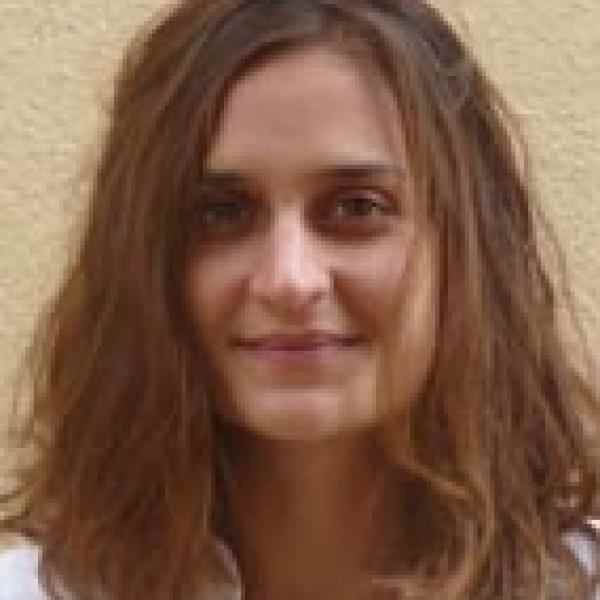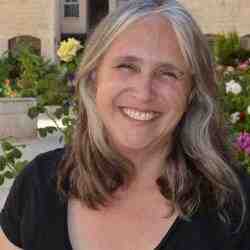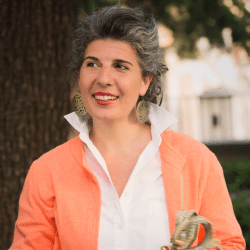Introduction
Anne Roos-Weil has piloted a cost-effective medical system to drastically reduce the number of African children and mothers who die from benign diseases. Combining simple skills and cell phones, she systematically collects basic health data and transfers it electronically to local medical staff to inform proper treatment or medical action. Endorsed by the Malian Health Ministry and private companies, Anne’s idea systematizes the early detection of 70 percent of mortality cases and creates a system-flip from sickness to wellness.
The New Idea
In sub-Saharan Africa, diseases that can be easily treated are still responsible for 60 percent of infant deaths. By regularly monitoring basic health data, Anne has created a simple and innovative system that makes early identification of disease, illness, and medical conditions possible. In her model, formerly unemployed women are equipped with basic health training to conduct health visits in the homes of pregnant women and children under the age of five. They collect information on weight, temperature and early-sign symptoms, and then send the data to an online platform by using a cell phone and dedicated software. Local doctors connect to this platform in order to follow up with sick patients, detect medical anomalies and offer treatment. The result of Anne’s work is the prevention of medical emergencies and complications as well as a drastic reduction in the infant mortality rate.
Recognizing that the country’s rate of patient frequentation in healthcare facilities is very low (30 percent), Anne integrates her service into existing primary healthcare centers and develops local capacity to build efficient care systems. As a result of the Pesinet service, local infrastructures benefit from a 40 percent rise in visits and new incomes on medicine sales. Based on successful work in three centers in Bamako, Anne has signed a national agreement with the Ministry of Health and the Federation of community-based health centers that will enable her to easily replicate her solution throughout Mali and transform healthcare into a cost-effective and preventive system.
Anne’s sustainable and affordable health detection system has a twofold advantage: improving access to care while also cutting costs. Subscribing family members pay just 1€ (US$1.37) a month for a micro-insurance that includes preventative care, doctor consultations, and half priced medication. Also including a weekly visit, the Pesinet service enables families to reduce by 50 percent their annual average spending on health expenses while integrating the importance of prevention. Anne develops the sustainability of her market-based solution through subscriptions as well as a tiered pricing system that enables her to reach middle- and upper-class populations, new services for pregnant women, and the integration of her service into the existing mutual insurance systems. Anne’s model is shifting the healthcare system away from sick-care to promoting prevention and wellness.
The Problem
Even though Mali’s healthcare system benefits from a network of 800 primary healthcare centers, only 50 percent are well equipped with medical staff and medication. Consequently, mortality rates in Mali are comparable with global estimates in the developing world: one in six children dies before the age of five and mothers are 120 times more likely to die than in developed countries. Benign diseases, like diarrhoeal illnesses, malaria, pneumonia or measles, are responsible for 60 percent of deaths. When these health issues fail to be treated early on, they quickly become infectious and too complicated to be treated.
The disconnect between community health needs and the country’s healthcare system is a major cause of the high rates of mortality. Due to financial and cultural barriers, as well as problem of quality service, less than one-half of people in Mali visit a doctor when they are sick. Self-medication and traditional medicine remain the preferred solutions and official doctors are only consulted in emergencies once the disease is at an advanced-stage and there is a higher cost of treatment. Furthermore, Mali’s public healthcare system lacks a basic level of healthcare coverage. The public healthcare system overlooks the 95 percent of the population working in the informal sector. Those 5 percent it does manage to cover comprises a mere 9 percent of total health care expenses in Mali.
Within this context of disparities and resource inequalities, it is extremely difficult to develop effective forms of preventive health. Health bodies focus on treating sick people rather than on preventative care due to a lack of resources and for the lack of immediate returns. For similar reasons, families are reluctant to pay for preventative care.
Primary healthcare is the key leverage point for improving a country’s failing healthcare system. Today, these community-managed structures are underused and ailing with financial instability. They fail to generate enough revenue from consultations or medication to self-finance their costs. Moreover, primary care centers are generally unable to treat the majority of patients, since patients often arrive in life-threatening situations and must go to the hospital in order to receive appropriate care. Promoted by the government, community-based medical infrastructures are essential to prevent and treat benign diseases and develop a holistic healthcare system.
The Strategy
Having tested the model in Bamako, Anne has validated key elements of success to further develop her low-cost medical service for young children that relies on a low-cost subscription system and mobile technology. They include a low-cost business model, the recruitment and training of a female workforce, efficient technological tools, and partnerships with local primary healthcare organizations. By evaluating how Pesinet injects demand (consultations and medication) into the primary health centers, Anne has convinced the National Federation of Community Health Centers to sign a national agreement to deploy her service. It defines the responsibilities of each stakeholder to successfully deploy Pesinet in a determined area as well as the financial conditions: local primary doctors are paid to dedicate an average of 15 hours a week to treat Pesinet patients; each staff has to regularly follow basic trainings on preventative care and customer-friendly behavior to become more empathic, weight agents become members of the primary centers’ medical teams to better integrate the service.
Anne has built a methodology to easily spread her self-sustaining healthcare solution. She has started to expand into communities located near Bamako, so as not to create disparities between close communities. Anne currently pilots the adaptation of her service to follow pregnant women, in partnership with the French Red Cross. Finally, she implements a tier-pricing system with premium offers for middle- and upper-classes of populations that have shown great interest in her service and would be able to pay more to subscribe.
With the support of Deloitte, Anne has also identified new partners to accelerate her growth. The first are mutual insurance companies. Currently reformed, Malian insurance companies benefit from government support to reach new clients among low- and middle-income populations. As a result, Pesinet is a very attractive offer for them to succeed in that mission. Through the first pilot in the Sikasso area, with a potential of 11,000 beneficiaries, Anne tests and frames a win-win partnership model that will allow her to sustainably spread into new cities and rural areas. The second set of interesting partners includes private companies, especially in the mining industry and agriculture. Interested in offering health services to their employees, Anne is developing an offer that could cover the costs of the service to a whole new area, and envisions in that a great opportunity to expand to other African countries.
Finally, by leading the spread of the Pesinet network, Anne positions Pesinet as a knowledge partner for national governments and international organizations. Her network of affiliated organizations in urban and rural communities constitutes a great opportunity to collect data among populations and systematize national health watches. From a longer-term perspective, Anne aims to carry out regular health studies for Mali and other African countries, which has the potential to greatly influence the methodology and the outcomes of national health studies.
The Person
Anne became interested in social issues from a very young age, when she became a member of a theatre group that organized street festivals and plays in isolated rural areas. Coming from a family of doctors, she always understood the importance of the public health system and therefore decided to focus her studies on the public sector. While pursuing a political science degree, she worked for the French Embassy in Lebanon. In Lebanon she used her free time to collaborate with a local citizen organization, set up a library bus and bring books to isolated communities where infrastructure had been destroyed by the war. When Anne returned to France she focused on international development and went to Geneva to work at an international organization on migration issues. When developing new fundraising partnerships with large companies, Anne realized that the private sector is an important part of solutions to social problems and decided to explore this idea further. Returning to Paris, she took a job as a corporate responsibility manager at Alcatel-Lucent and obtained funding to be trained on social entrepreneurship at ESSEC Business School.
Anne came upon the idea of early detection of diseases by monitoring a person’s weight during a class called “Creation of Innovative Product,” in which she was presented with a failed project, Initiative France, a major venture capitalist firm in France. With this starting point, Anne decided to take the lead with a group of students and work on a new business plan to create an efficient, sustainable and self-financed system that would work. She took the time to understand the causes of the failure and realized that various key features could be added to the project to make it successful. First, Anne worked on the technological component and mobile applications based on her experience at Alcatel-Lucent, which made her fully aware of the potential of new technologies when applied to social problems. The next insight came about after a key encounter on the plane to Bamako, which led to the decision to build her service by partnering with local primary healthcare centers and using available medical resources, instead of working with expensive private doctors. Eventually, Anne’s training in social entrepreneurship at ESSEC encouraged her to adopt a social business approach and create a sustainable market-based solution independent of public funding.
Today, Anne heads Pesinet and is in charge of its spread and expansion throughout Mali and other African countries. She is a committed coordinator in the field, demonstrated by her work with international organizations and large companies (Orange, Alcatel, BNP Paribas, and PPR). Aware of cultural gaps, Anne has locally anchored her solution by offering jobs to long-term unemployed women, empowering local staff, and building a network of spokespersons within communities.




